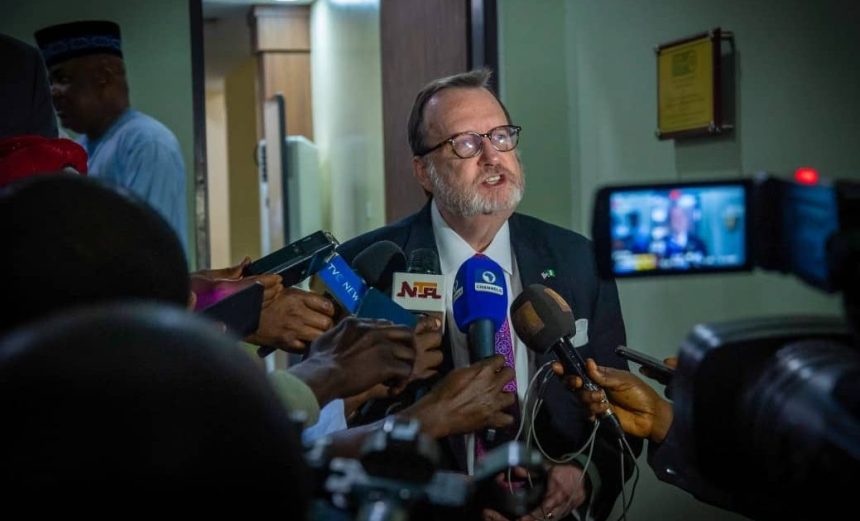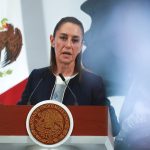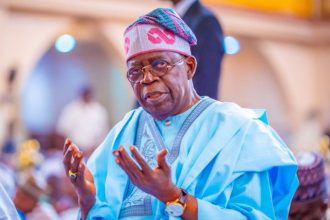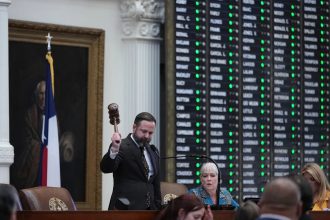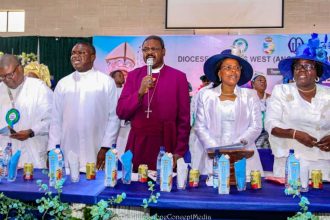The United States ambassador to Nigeria, Richard Mills, on Friday, defended the new visa rules imposed on Nigerians, clarifying that they were part of security measures by the country.
Mills made the clarification at a meeting with the Minister of Information and National Orientation, Mohammed Idris, in Abuja to discuss the changes to the US visa policies.
Both Mills and Idris called for increased awareness and compliance on among Nigerians on the new visa rules.
The US had earlier imposed tighter visa restrictions on Nigerians.
It revised its visa reciprocity schedule for Nigeria, limiting the validity of certain non-immigrant visas, including B1/B2 (business and tourism), F (student), and J (exchange visitor) categories, to just three months with single-entry access.
Speaking during a press briefing in Abuja, Mills clarified that the new visa measures announced by the US Mission were not punitive, but rather part of a global effort to tighten security, enhance service delivery, and ensure compliance with US immigration laws.
“Myself and the minister just had a very useful and productive discussion about US visa laws and how to communicate to the Nigerian people the importance of compliance with US visa laws,” he said.
The envoy underscored what he described as enduring and strategic relationship between the two countries, emphasising that US would continue to welcome Nigerians for study, business, tourism, medical visits, and family reunions.
He, however, said the visitors were expected to respect visa regulations.
“Let me be clear, the United States values its very strong relationship with Nigeria and the many kinds of connections that exist between our two countries.
“US visas play a vital role in keeping these countries going and strengthening them Both governments want visitors to respect our national laws and regulations,” the ambassador said.
Mills warned that visa misuse, such as overstaying or providing inaccurate information, undermined trust and could lead to severe personal consequences, including deportation or a lifetime travel ban.
“If you overstay, it can result in deportation and a lifetime ban on future travel to the US, which we don’t want to see Nigerian citizens face,” he said.
The ambassador urged applicants to be honest and transparent, stressing that “visa compliance is a cornerstone of mutual trust and respect between our two nations.”
Addressing concerns about the processing system, Mills revealed that the recent changes was in line with the US administration’s security-focused review of global visa operations.
He noted that the US government required more rigorous background checks, including access to Nigerian criminal records, to ensure applicants are properly vetted.
“We needed to address some of the security vulnerabilities that we saw in our visa processing.
“The Nigerian government is working to find a mechanism so that we can have better understanding of who’s before us when they apply for a visa,” Mills explained.
In addition, the ambassador stressed that compliance also applies to student visa holders.
“If you skip classes, if you leave your programme of study without informing your school, your student visa could be revoked,” he warned.
He urged Nigerians to visit the US embassy website for official guidance and support.
In his remarks, Idris praised the US embassy for taking the initiative to clarify its position directly with the Nigerian public.
“This brings me to believe that we need to come together at times like this to have a common position so that Nigerians can be better informed about what we do,” he said.
The minister described Nigerians as global travelers who are frequent to the United States more than almost any other destination, emphasizing the importance of clear, accessible information about visa processes.
“Nigerians visit almost all parts of the world and because we engage and we travel a lot, we feel that it is necessary to have information shared with us from time to time as it affects the travels amongst our people,” he said.
Idris added that the ministry would continue to work closely with the US Mission to ensure transparency, understanding, and public education on all consular issues.
“Let me recognize the mutual respect and partnership between Nigeria and the United States and its embassy to keep Nigerian travelers well informed about its visa and consular services,” he said.
The minister also dismissed the notion that the new visa processes were discriminatory.
He said, “Before coming to this office, we had engagements with amb Mills, and what he has told me is that this is in no way punitive. It’s just to enhance service delivery between the two countries.”
The Minister echoed the US position on the importance of complying with host country laws and urged Nigerians to uphold the country’s image abroad.
“When someone comes into Nigeria, we expect that person to also comply with our laws here. So what I want to say here is that Nigerians must continue to demonstrate, as they do, a better sense of patriotism about their country and also show better compliance with not just our laws, but laws of other countries,” he said.


